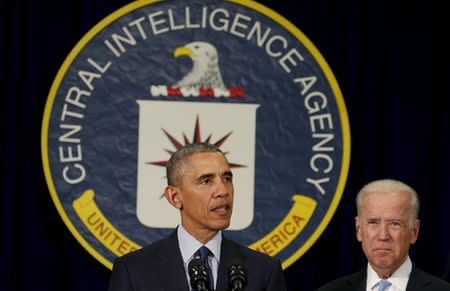Obama tells Putin that U.S.,Russia must be 'in sync' on Syria - CBS interview

WASHINGTON (Reuters) - U.S. President Barack Obama said he told Russian President Vladimir Putin in their call on Monday that the situation in Syria is quickly deteriorating and that their two nations need to work together for the war-torn country to move forward. "We're starting to see it fray more rapidly, and if the United States and Russia are not in sync about maintaining it and getting a political track and transition moving, then we could be back in the situation we were three, four weeks ago," Obama said in an interview that aired on CBS on Tuesday. "That would serve neither of our interests," he added. On Monday, Washington and Moscow agreed to enhance their coordination on Syria, which has been mired in a civil war for five years. In what the White House described as an "intense conversation," Putin and Obama agreed to more closely coordinate their intelligence services and defense ministries. Their call comes as Syrian peace talks in Geneva threaten to crumble as the mainstream opposition called for a pause on Monday. The Kremlin earlier on Tuesday called for talks to continue. Obama, in the CBS interview, said in theory the United States does not object to Russia's insistence that the Syrian state maintain its structure. But, he added, "where we have continually butted heads, and this has been true for six years now, is his insistence that he cannot back, unilaterally, the removal of Assad, that that's a decision Assad and the Syrians would have to make." The Obama administration has repeatedly called for the removal of Syrian President Bashar al-Assad and worked with other Western nations to back groups trying to overthrow him, while Moscow is the Assad government's the main ally. The Syrian war has killed more than 250,000 people and led to the world's worst refugee crisis. (Reporting by Susan Heavey; Editing by Chizu Nomiyama and W Simon)

